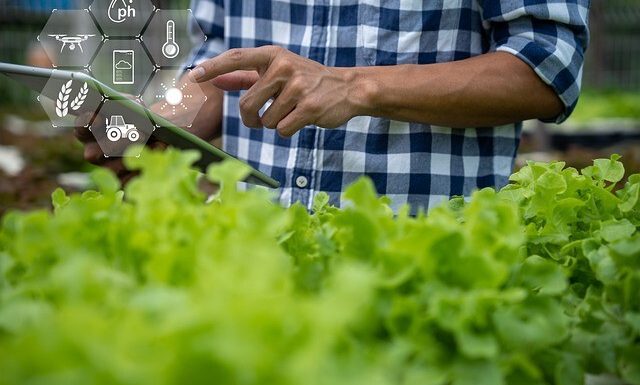
While the purpose of agriculture has not changed since the dawn of mankind, the way it is managed has changed drastically in the past century, and especially the past few decades with the advent of the internet and advanced computer systems. With increased technological capacities, agriculture has experienced a bloom in productivity and an increased ability to interact with global supply chains.
With this increased interaction, ensuring transparency and traceability is important for the supplier, carrier, and consumer to ensure safety and efficiency within the supply chain. According to AgriTech providers, utilizing blockchain, a method of storing data securely and immutably, can be helpful in accomplishing both increased transparency and improving traceability of products.
What is Blockchain?
Blockchain is essentially a means of keeping track of data within a system by having multiple locations that store the data (called nodes) at once, keeping track of the system, which ensures that once data is logged, it is immediately updated over the entire system and cannot be easily changed once logged. Utilizing blockchain for the production of agricultural assets through storing data from sensor measurements and inputting important information on production yields is useful in assessing the real costs of growing or raising the products. This can improve the accuracy of pricing and help producers understand where their operations can be optimized according to the United Nations Food and Agriculture Organization.
Additionally, blockchain storage can be incredibly useful for supply chain management as the information about agricultural products can be stored en masse from the harvesting and processing to the distribution and eventual sale of the merchandise. Keeping track of all this information ensures all parties are held accountable, and it ensures that dangerous issues within the supply chain can be traced and addressed rapidly.
Agricultural Transparency
Utilizing blockchain data tracking systems can help increase clarity within the supply chain and ensure all players are working effectively. According to agribusiness experts, responsible data storage ensures agricultural operations are aware of how their products were produced and where their products are going, and this increases consumer confidence in knowing the products they buy are being responsibly handled from farm to table. Though the programming itself can be complicated, implementing blockchain systems into agriculture can be as simple as speaking to an experienced AgriTech provider about the available options on the market.
Renovating the Supply Chain
Agriculture requires the management of large amounts of data that can be produced and stored by different operations. With the ability to gather and store this information, agricultural operations will be able to optimize processes and ensure their products are being distributed responsibly and promptly. According to leaders in agribusiness, renovating the supply chain with data management tools like blockchain increases transparency and traceability, which provides suppliers and carriers with relevant information for their products while improving consumer safety as remedial action can be taken in the case of carrier or producer mishaps, sometimes before products reach the shelves.
Tech World Times (TWT), a global collective focusing on the latest tech news and trends in blockchain, Fintech, Development & Testing, AI and Startups. If you are looking for the guest post then contact at techworldtimes@gmail.com

